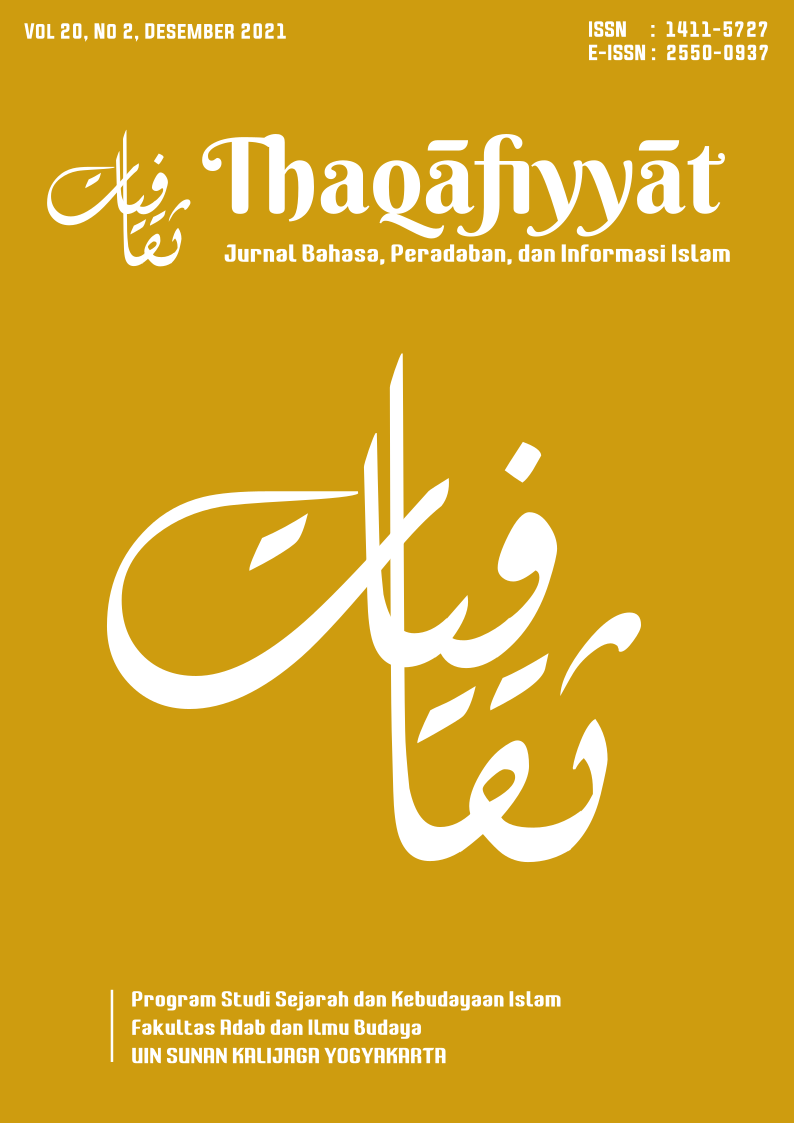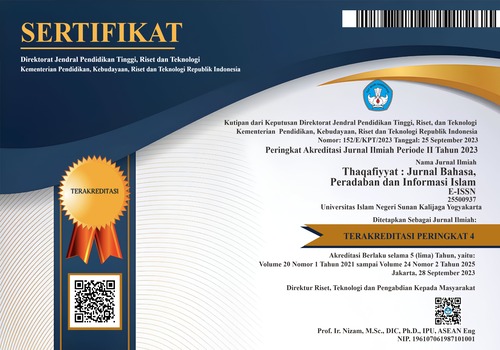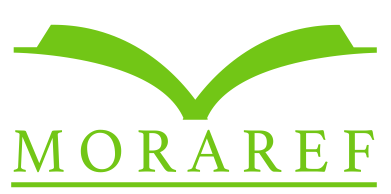Syi’iran Tradition in Bantul: Merging Islam and Local Tradition
DOI:
https://doi.org/10.14421/thaq.2022.21206Keywords:
Islam, local tradition, syi’iran, da’wahAbstract
Abstract: Islam and local tradition cannot be separated when delivering da'wah. It is crucial to understand and respect local traditions while promoting Islamic values to achieve effective and meaningful delivery of the message of Islam. While the advancement of technology offers a variety of media in Islamic teaching, a few communities still take advantage of the local tradition to deliver da’wah. This research focuses on Syi’iran Tradition in Bintaran Wetan, Srimulyo, Piyungan, Bantul where the community in that area deliver da’wah through syi’ir. This study employs qualitative analysis, where the primary data is collected through documentation and in-depth interviews with the leaders and activists of syi'ir. This paper argues that the syi’iran tradition proves that local tradition and Islam can be merged to convey Islamic teaching harmoniously and preserve the local tradition simultaneously.
Abstrak: Islam dan tradisi lokal tidak dapat dipisahkan ketika menyampaikan dakwah. Sangat penting untuk memahami dan menghormati tradisi lokal sambil mempromosikan nilai-nilai Islam untuk mencapai penyampaian pesan Islam yang efektif dan bermakna. Sementara kemajuan teknologi menawarkan berbagai media dalam pengajaran Islam, beberapa komunitas masih memanfaatkan tradisi lokal untuk menyampaikan dakwah. Penelitian ini berfokus pada Tradisi Syi’iran di Bintaran Wetan, Srimulyo, Piyungan, Bantul, dimana masyarakat di daerah tersebut menyampaikan dakwah melalui syi’ir. Kajian ini menggunakan analisis kualitatif, dimana data primer dikumpulkan melalui dokumentasi dan wawancara mendalam dengan para tokoh dan penggiat syi'ir. Tulisan ini berpendapat bahwa tradisi syi’iran membuktikan bahwa tradisi lokal dan Islam dapat dilebur untuk menyampaikan ajaran Islam secara harmonis dan melestarikan tradisi lokal secara bersamaan.
Downloads
References
Andriani, Tuti. “Revitalisasi Naskah Syair: Sebuah Solusi Dalam Pengembangan Kreatifitas Mahasiswa Untuk Mencintai Budaya Lokal.” Jurnal Sosial Budaya 11, no. 1 (n.d.): Januari-Juni 2014.
Burhanuddin, Muhammad. “Nilai Humanisme Religius Syiir Pesantren.” Jurnal Sastra Indonesia 6, no. 1 (2017).
Halwati, Ummi. “Analisis Foucult Dalam Membedah Wacana Teks Da’wah Di Media Massa At-Tabsyir.” Jurnal Komunikasi Penyiaran Islam 1, no. 1 (June 2013).
Kurniasih, Indah. “Fungsi Teks Takhyīrah Mukhtașar Bagi Masyarakat Desa Paesan: Sebuah Kajian Resepsi.” Jurusan Sastra Indonesia Fakultas Ilmu Budaya Universitas Diponegoro (2018).
Maula, M. Jadul. Ngesuhi Deso Sak Kukuban: Lokalitas, Pluralisme, Modal Sosial Demokrasi. Yogyakarta: LKiS, 2002.
Moleong, Lexy J. Metodologi Penelitian Kualitatif. Bandung: PT. Remaja Rosdakarya, 1998.
Musiran, September 5, 2022.
Omar, Toha Yahya. Ilmu Da’wah. Jakarta, 1971.
Rakhmat, Jalaluddin. Metode Penelitian Komunikasi. Bandung: PT. Remaja Rosdakarya, 1991.
Saefuddin. “Syair Nasihat Sebagai Sarana Da’wah Keagamaan (Advisory Poem as a Tool of Religion Mission).” Jurnal Undas 16, no. 2 (Desember 2020).
Sukemi, August 22, 2022.
Syamsuri, Siddiq. Da’wah Dan Tehnik Berkhotbah. Bandung: Al-Ma’arif, 1993.
Syukir, Asmuni. Dasar-Dasar Strategi Da’wah. Surabaya: Al-Ihlas, 1983.
Ya’qub, Hamzah. Publistik Islam. Bandung: Diponegoro, 1981.
Downloads
Published
Issue
Section
License
Copyright (c) 2023 Khoiro Ummatin

This work is licensed under a Creative Commons Attribution-NonCommercial-ShareAlike 4.0 International License.
Authors who will publish with this journal agree to the following terms:
- Thaqafiyyat: Jurnal Bahasa, Peradaban dan Informasi Islam publishes all articles entirely in full text.
- It is permissible for readers to download and to use it for scientific purposes and scientific dissemination.
- Authors retain copyright and grant the journal right of first publication with the work simultaneously licensed under a Creative Commons Attribution License that allows others to share the work with an acknowledgement of the work's authorship and initial publication in this journal.
- Authors are able to enter into separate, additional contractual arrangements for the non-exclusive distribution of the journal's published version of the work (e.g., post it to an institutional repository or publish it in a book), with an acknowledgement of its initial publication in this journal.
- Authors are permitted and encouraged to post their work online (e.g., in institutional repositories or on their website) prior to and during the submission process, as it can lead to productive exchanges, as well as earlier and greater citation of published work.









